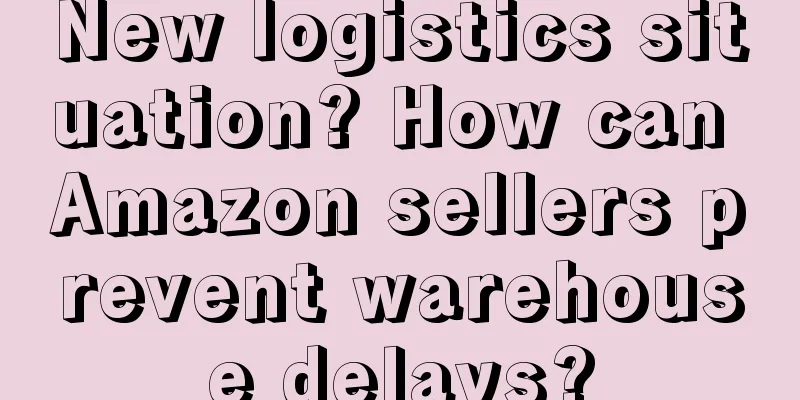Amazon Account Shut Down? Five Ways to Avoid Complaints

|
Having your account closed is a real pain for Amazon sellers. Many sellers panic, get angry, get discouraged, or get confused. In fact, there is no need to panic. As long as you take the right measures and submit a proper complaint to Amazon at the right time, it is entirely possible to restore your account. But many times, due to some incorrect operations of sellers after receiving the store closure notice, they lost the great opportunity to appeal in vain, caused economic losses, and wasted time and energy, which is a pity. The following are some incorrect seller behaviors. When receiving a store closure notice, it is strongly recommended to avoid the following behaviors: 1. Abandon the account and open a new one 2. Rushing to submit a complaint This is something that any Amazon person who writes an appeal should consider carefully. Rushing to submit an appeal will only waste the first precious appeal opportunity. 3. Submitting false information Little do people know that Amazon has a professional data review team, and most of this information will not pass the review. Instead, you will be charged with submitting false information (forged documents). 4. Blame it on competitors 5. Complain about Amazon’s review mechanism and threaten Amazon Complaints are complaints, but it is not a wise move to vent your grievances to the auditors through appeals. In short, you should calm down, reflect on every detail of your operations, carefully read Amazon's relevant policies, improve your business methods, submit a well-reasoned appeal letter, and regain sales rights. This is the correct way to deal with Amazon's store closures! - END - |
<<: 10 Amazon product research tools you deserve
Recommend
Walmart expands drone delivery coverage to 1.8 million homes in Texas
It is learned that on January 9, Walmart announced...
Good news! UK VAT rate may be reduced to 15%
Breaking news! The UK VAT rate may be reduced. UK...
The exchange rate breaks 6.3! The US dollar continues to depreciate. Should sellers raise prices or change their business?
Today is Children's Day, but for the expired c...
Target's second-quarter revenue fell short of expectations, and profits plummeted by nearly 90%!
<span data-docs-delta="[[20,"获悉,8月17日,美国第二...
Shein's IPO in the US has not yet been finalized, and the US Congress is making trouble again
It is learned that according to foreign media repo...
Nearly 30% of US consumers plan to use BNPL payments during the holiday season, with strong demand from Generation Z
It is learned that on September 10, according to f...
What is SellerActive? SellerActive Review
SellerActive's e-commerce tools help you manag...
What is Xinhua Logistics? Xinhua Logistics Review
Xinhua Logistics (Shenzhen Xinhua Logistics Co., L...
[Benefits] Detailed discussion of the pitfalls and opportunities of brands going overseas
The Sino-US trade war has come to an end, and the ...
Novice sellers - the first step to improve refined operations - start keyword mining and optimization
This issue 1. Manual advertising vs. automatic ad...
Wayfair's annual promotion Way Day will start on October 5
It is learned that on September 26, home furnishin...
What is CPC certificate? CPC certificate evaluation
The CPC certificate is a children's product ce...
With a valuation of US$2.6 billion, 0 fees and subsidies, why is this new payment "unicorn" so arrogant?
Cross-border e-commerce has become popular again a...
Competitive product analysis | How to learn competitors' operating strategies
The super useful information I bring you today is ...
eMarketer predicts: US social e-commerce will reach 79.64 billion US dollars in 2025!
It is learned that social e-commerce is currently ...









